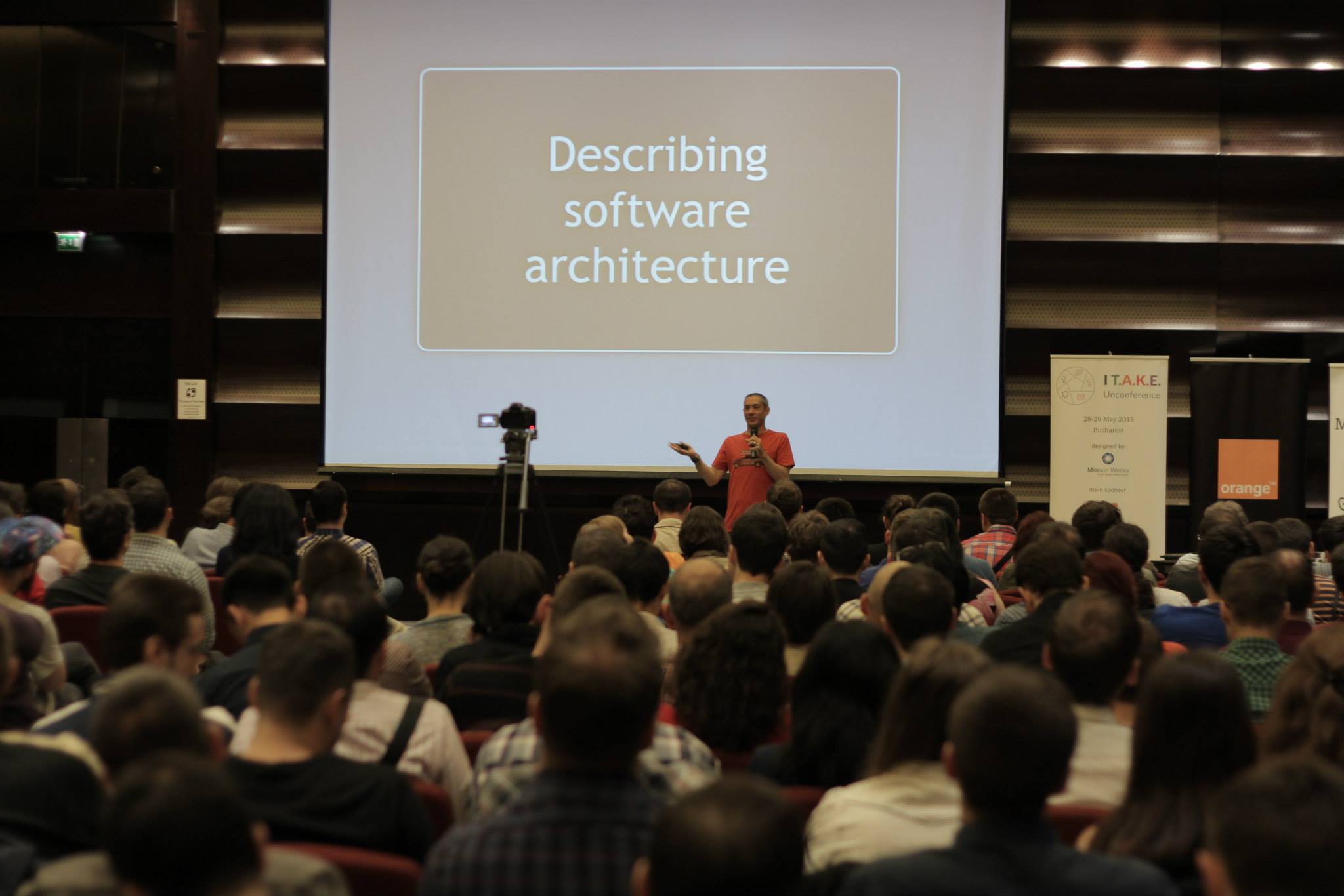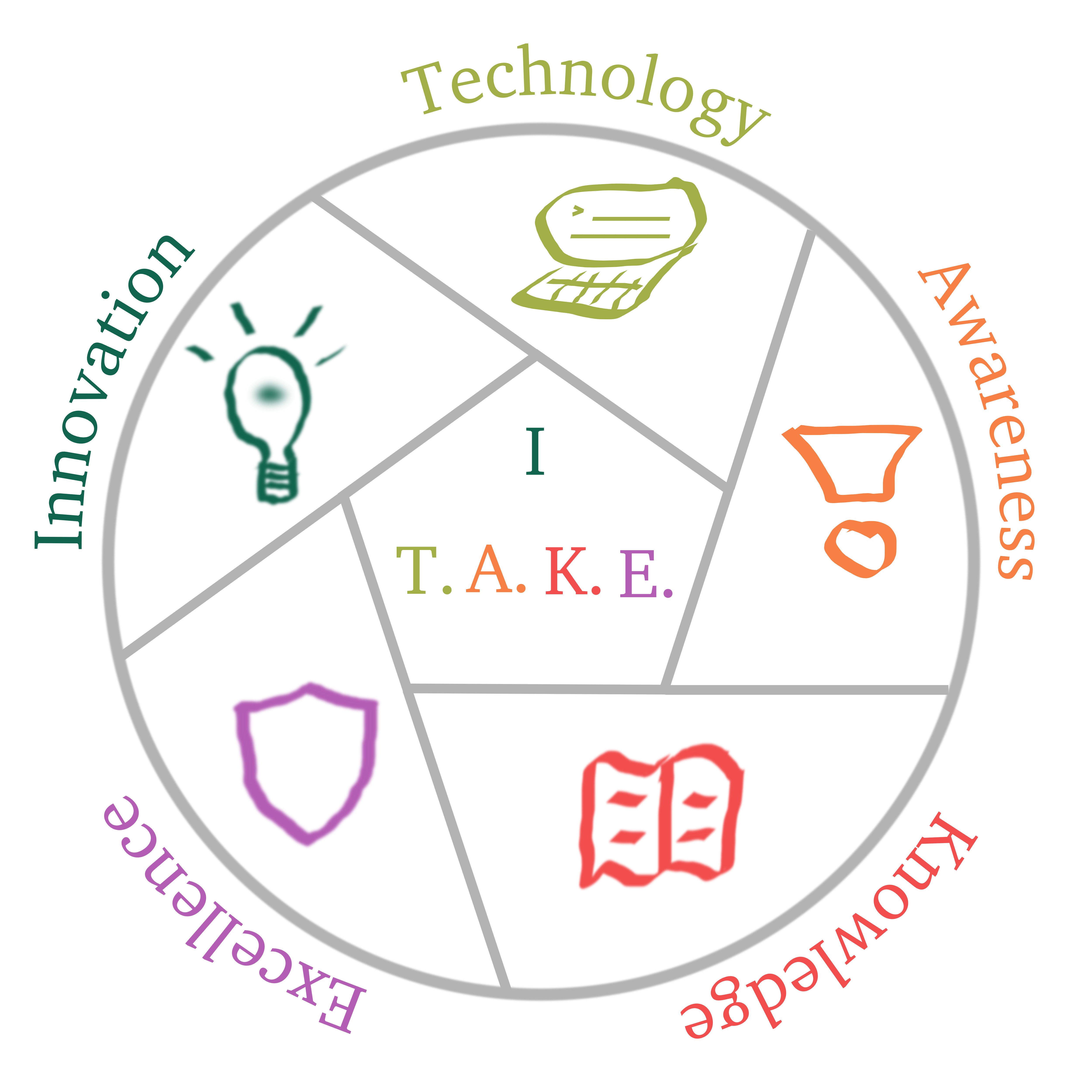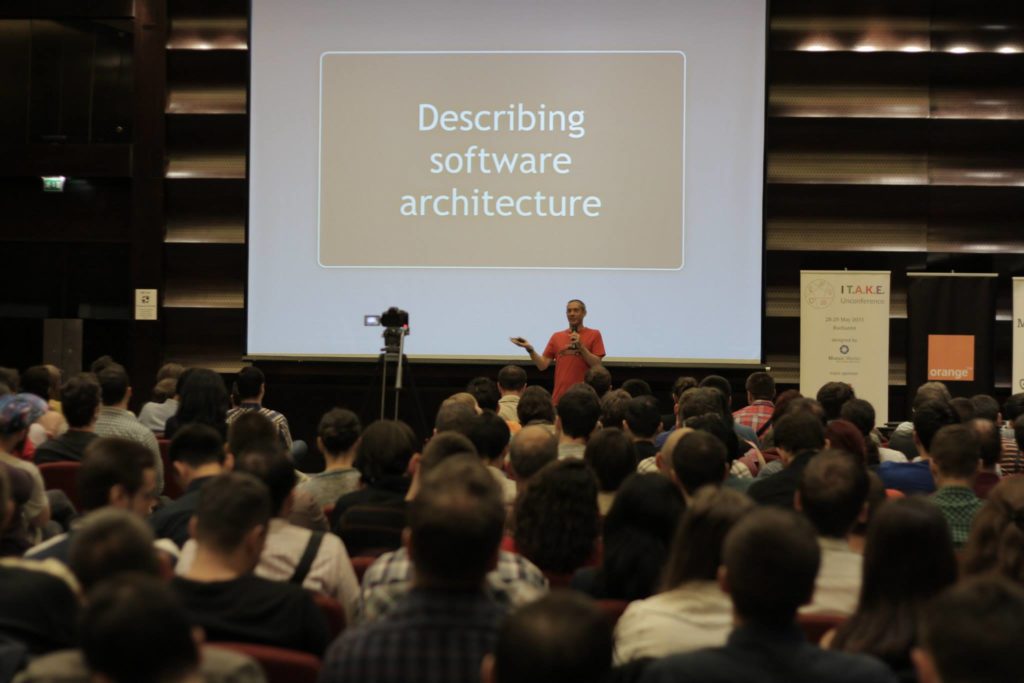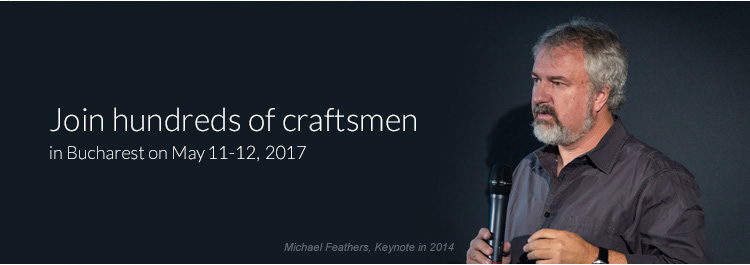
If you are an experienced software craftsperson, but you are new to the international stage of speaking and teaching, here are 5 recommendations to make an attractive session abstract for the audience of I T.A.K.E. Unconference.
#1. Get into the attendees shoes
If you have a very clear idea of who your audience is going to be, make the exercise to think from their point of view. They choose to attend your session, and they expect the best value from their investment.
So, here are 3 things to consider:
- what do you think is going to drive their attention
- what is that thing they will remember
- and apply in their daily work
#2. Customize, customize, customize
Every audience is unique, so craft your proposal according to what you know about your audience and about the event. Try to bring an original approach for each session you submit.
As organizers, we encourage the speakers to have a clear goal for their session. Another essential aspect is to both inspire the audience and send them to a new path. With your session you influence people so that they could adopt a different strategy or improve right away their work, and why not, their daily life.
#3. Pay attention to details
When you apply, make sure you have an excellent title, a clear description of what you want to present and a strong personal bio.
Make sure your title is not generic. Don’t use “Unit Testing” as a title for your workshop. You do not have enough time to teach unit testing in 90 minutes. Try something like “Unit Testing Crash Course” if it is for beginners. If you designed a workshop for an intermediate audience try something like “Unit Testing: stubbing techniques on functional languages”.
The title is strictly connected to the topic of your session. Too often the session title says something different than the content of the abstract. For a title like “Test Driven Development for beginners” we would expect to hear about Evolutionary Design. If you have such a title and you want to teach an unit testing crash course and not Evolutionary Design, then use the appropriate name and change the title to “Unit Testing Crash Course”.
An attractive title that can be intriguing can catch reviewers eyes as well. Instead of using “Unit Testing Crash Course” you could try “Keep your job: learn unit testing now!”
#4. Invest time in your application
Although it might seem at hand, making a proposal takes time. Make sure you follow the guidelines offered by the organizers and when in doubt, ask for more details. Make sure you offer the details requested in the application.
Pitch an interesting subject, and valuable take aways. The audience is at your session to learn about new interesting ideas and concepts.
#5. And a little extra thing
You’ve seen the call, you got your information in order and you are pretty sure you want to make a submission. In this case, we strongly advise you to make an early submission. In many cases, you will be able to obtain feedback from the organizers. This means you will be able to improve your proposal and increase your chances to be on the speakers list.
Take a step forward and share your knowledge: new ideas, opportunities and glimpses of where the future of the technology lies are needed to challenge and to improve the daily routine. Looking forward to hear more about your proposed sessions!






